Delhi Mother Left Advertising Career to Teach 72000 Kids Farming & Sustainability in Schools
“I used to throw food away without a second thought. It never occurred to me where it came from or what it took to grow it,” confesses sixteen-year-old Lila Ramaswami, a student at Shiv Nadar School in Gurugram.
“Everything changed once I learnt about the journey of food — how seeds sprout, how soil and water matter, how nature is connected. It made me see food and the environment completely differently.”
This revelation is part of a revolution unfolding in schools across Delhi and the surrounding National Capital Region (NCR). Here, children are beginning to reconnect with something many didn’t even realise they had lost — their bond with the natural world.
In an age where cities are growing taller and technology moves faster than ever, the simple truths of where our food comes from, how seasons shape our lives, or why a tiny insect matters to a plant’s survival have started to slip away.
For many young people, these once-intimate understandings have become distant, even invisible, buried beneath supermarket shelves and busy schedules. But that is beginning to change.
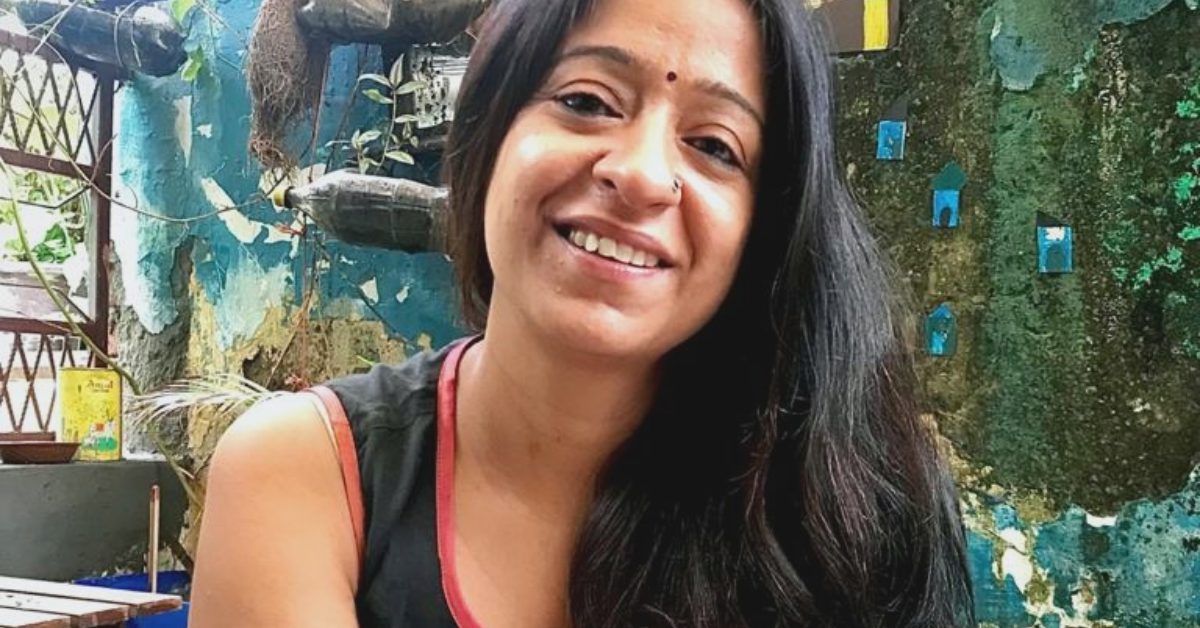 Pragati started a terrace garden to teach her son the importance of vegetables and fruits
Pragati started a terrace garden to teach her son the importance of vegetables and fruits
In this evolving landscape, an initiative named SowGood has taken root. Based in Delhi NCR, it is an educational programme that has reached over 72,000 children, changing how they learn by connecting them directly to the soil.
But the initiative was not born from a traditional academic approach or government policy. It was born from the vision of one woman who stepped away from the corporate bustle to create something meaningful.
The woman who swapped advertising for earth and meaning
Pragati Chaswal spent over a decade in the high-octane world of advertising in Delhi, building campaigns for agencies including Lintas and McCann. Her last stint was at a startup called UCP Direct. By all external measures, she was excelling in her career.
“The creativity was rewarding professionally,” she tells The Better India, “but personally, I felt a void. I kept thinking — what am I building? Who is it helping?” As deadlines mounted and brand narratives grew more abstract, a deeper urge for meaning began to stir within her.
In 2013, she took what she thought would be a short sabbatical — a chance to pause, breathe, and recalibrate. But that break ended up stretching into something more eye-opening.
“It was the first time in years I stepped back to observe my life,” she reflects. “I started noticing the little things—the way my son Neel would pick out vegetables from his plate and push them aside, never asking why he needed to eat them or where they came from. He didn’t care if they went to waste. That indifference started to bother me.”
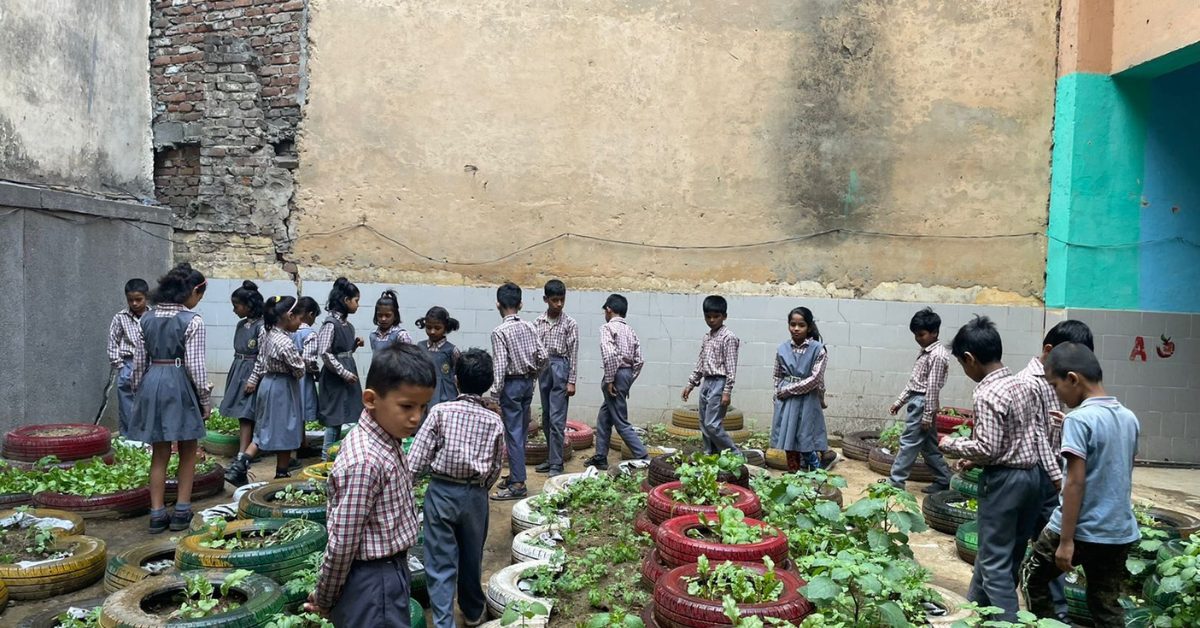 Pragati wanted to introduce farming and sustainability education in schools, with a special focus on government institutions
Pragati wanted to introduce farming and sustainability education in schools, with a special focus on government institutions
She noticed the same disconnection in other children too — urban kids growing up without the faintest clue of how food is grown, what season it belongs to, or how soil, water, and sunlight work together.
“It was shocking. We talk about nutrition and health, but we’ve completely cut children off from the source — the Earth,” she says.
Determined to bridge this gap, Pragati began experimenting with her terrace garden. “I wanted Neel to understand why he needed to eat vegetables — not just as something on his plate, but as living things that grow from the Earth,” she explains.
She cultivated over 35 varieties of fruits, vegetables, and herbs, absorbing herself in organic farming, permaculture, and sustainable practices.
To deepen her understanding, she completed a diploma in organic farming from Indira Gandhi National Open University (IGNOU) in 2015, along with several other courses in farming and sustainability.
“It was important for me to learn thoroughly so I could teach other children and make the process meaningful, not just a hobby,” she says.
Growing knowledge: From a terrace garden to a citywide mission
This small experiment blossomed into a larger vision—to introduce farming and sustainability education in schools, with a special focus on government institutions.
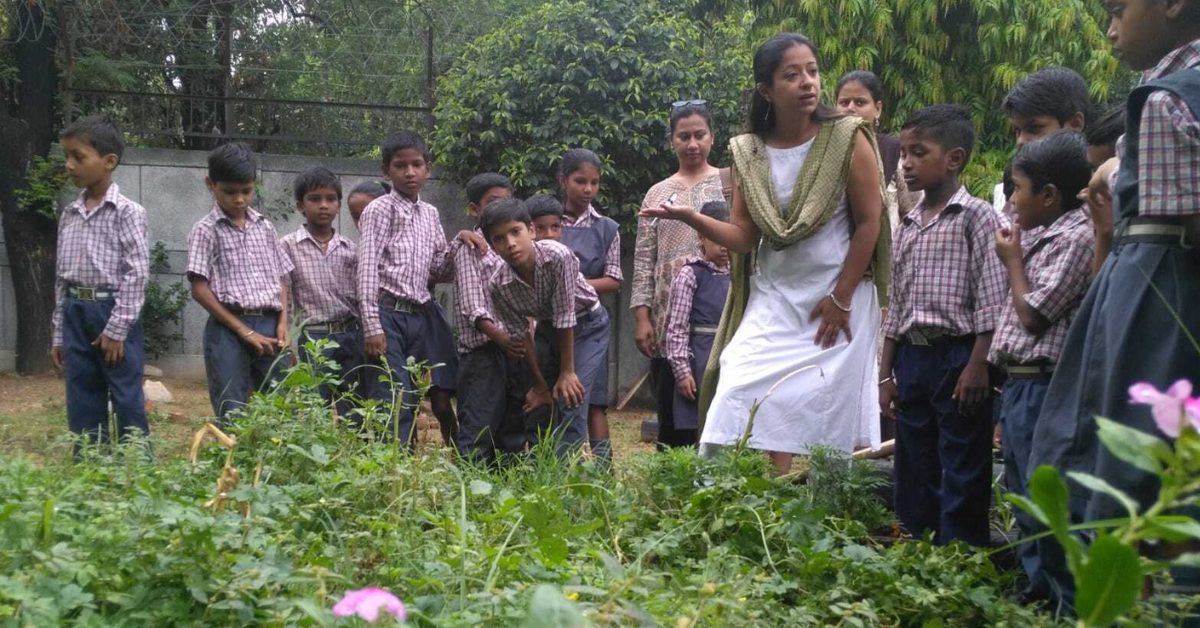 SowGood’s core belief is that children learn best through hands-on experience
SowGood’s core belief is that children learn best through hands-on experience
By offering the programme free of cost to government schools, she ensured that all children, regardless of background, could enjoy experiential learning and develop a genuine connection with nature. Thus, in 2017, the SowGood Foundation was born.
The first farm was established at BRF (Beeya’s Riding Facility) in Delhi, involving about eight to ten children and their families from Mirambika, where Pragati’s son was a student.
“Everyone believed it was essential for children to understand that reusing and recycling items is important. Equally, they should know where their food comes from,” she says.
Over three years, the project grew organically, setting up farms in various institutions. In 2020, it began expanding into government schools, as more principals and teachers reached out through word of mouth and social media.
SowGood’s core belief is that children learn best through hands-on experience — engaging all their senses and emotions. Its integrated three-year curriculum is designed to awaken awareness, encourage responsible behaviour, and inspire students to become ambassadors for sustainability.
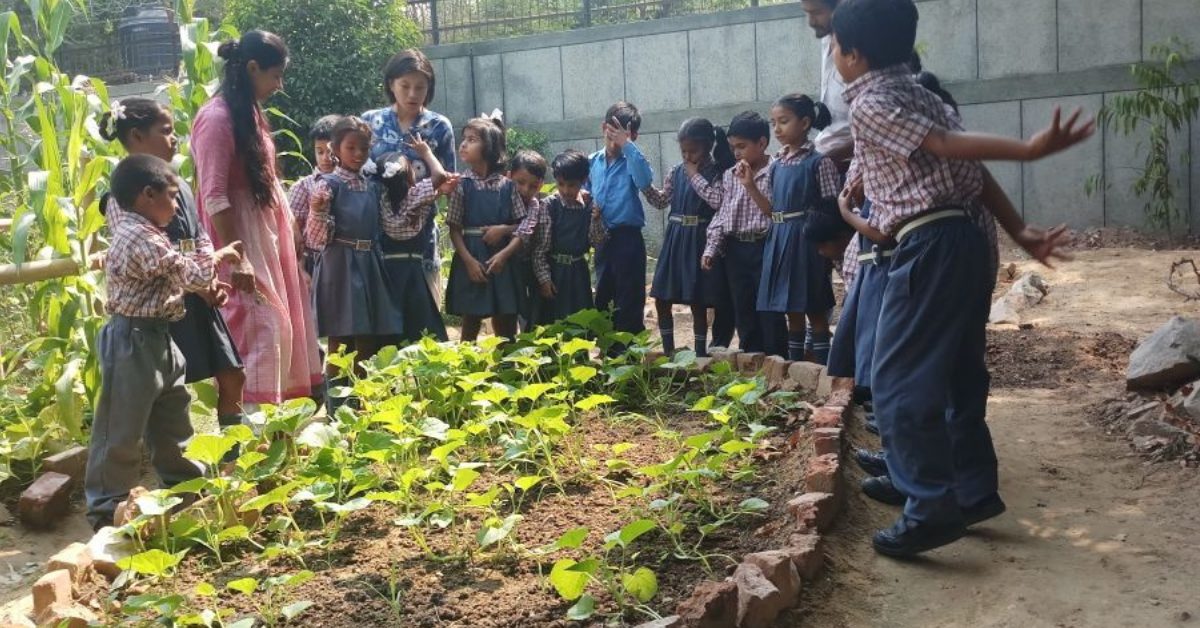 The SowGood Foundation grew organically, setting up farms in various institutions
The SowGood Foundation grew organically, setting up farms in various institutions
How the curriculum works
“The programme is built around three core principles: Vichar (thinking), Achar (behaviour), and Prachar (sharing). These guide children from developing awareness to taking action, and eventually inspiring others,” Pragati explains.
Year One: Vichar (Thinking)
Children are introduced to nature through observation and inquiry. “We aim to build a genuine love for nature,” she says. The curriculum rests on three pillars — environment, behaviour, and academics.
“When we discuss insects, I ask, ‘Are insects just pests to be killed, or are they important helpers in our ecosystem?’ This opens their minds to seeing every creature as part of a larger web of life,” she adds.
The academic component includes lessons on trees, their habitats, and seasonal cycles. These are brought to life through school farms, where children observe plants, insects, and soil firsthand. They are encouraged to ask questions like: “Why does this plant grow only in winter?” or “How do earthworms help the soil breathe?”
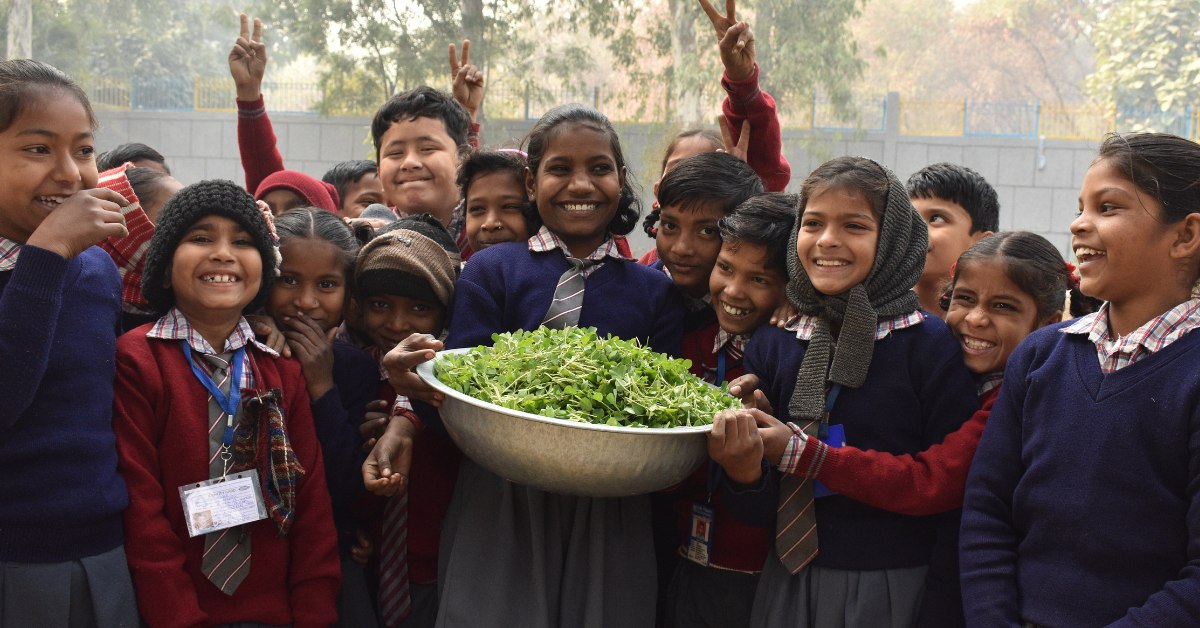 Children are learning the importance of growing their own food through the SowGood classes
Children are learning the importance of growing their own food through the SowGood classes
Year Two: Achar (Behaviour)
This is where thinking turns into doing. Each child is assigned a small plot in the school farm. They decide what to sow based on seasons, practise companion planting, and learn sustainable techniques like composting, mulching, and drip irrigation.
“It is where lessons become real,” Pragati says. “Children water their plants daily, watch for pests, journal their progress, and solve problems together. They learn the full cycle of growth and the value of persistence.”
Year Three: Prachar (Spreading)
Students become educators — sharing knowledge through presentations, workshops, and campaigns. “When children teach others, they deepen their own understanding and become advocates for change,” she says.
Real change in classrooms and homes
The holistic, experience-driven curriculum reflects Pragati’s belief that sustainability is a way of life, not just a subject. “When children feel connected to the soil, water, and life around them, they become guardians of the planet.”
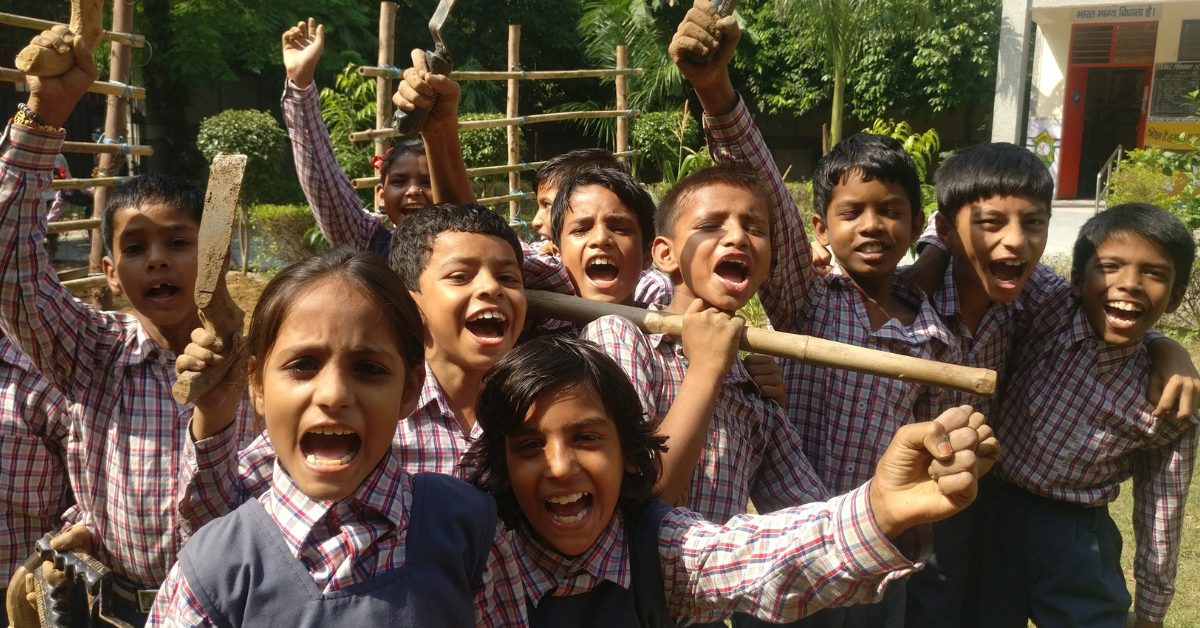 The foundation has reached over 72,000 children, changing how they learn by connecting them directly to the soil
The foundation has reached over 72,000 children, changing how they learn by connecting them directly to the soil
The three-year curriculum is designed for students in Classes 3 to 5. SowGood also offers hands-on workshops for students of all ages, ensuring every child gets to engage with nature.
The impact is already visible. Lila, now a sustainability enthusiast, says, “At first, I thought farming was just dirt and bugs. But after resowing seeds three or four times and finally seeing them grow, I felt a sense of victory. It taught me patience and to never give up.”
She adds, “I convinced my family to stop using foil to wrap food and started growing microgreens in discarded containers. SowGood made me realise every small action counts.”
Educators echo this transformation. Indu Batra, Principal of an MCD school in Andrews Ganj, says, “They take ownership of their farms. Their enthusiasm spreads to the whole school.”
Seema Sharma, a teacher at an MCD school in Sultanpur, adds, “Our students now segregate waste and use steel lunchboxes instead of plastic. These are lasting habits.”
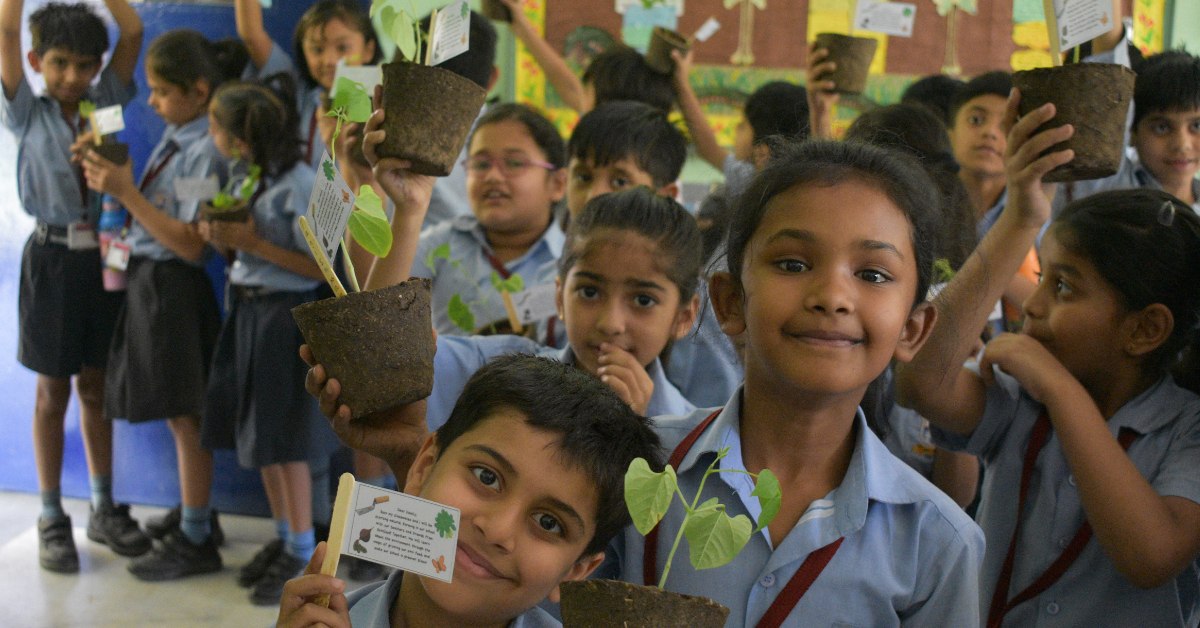 Children are teaching others to live a sustainable and healthy life
Children are teaching others to live a sustainable and healthy life
Shalini, a young associate facilitator, recalls how students cleared construction debris and plastic waste to build a school farm. “They repurposed waste to make paths and borders—it was a lesson in resilience and creativity.”
Scaling up sustainably
SowGood currently works with 22 schools, including MCD schools in Andrews Ganj, Ghitorni, Sultanpur, Aya Nagar, Kotla, and Defence Colony, and private institutions like Cambridge Schools in Delhi, Noida, Indirapuram, and Greater Noida, and Vedanya School in Gurugram.
While private schools pay for the programme, government schools are supported through CSR funding. “CSR has been vital — it allows us to scale and reach the children who need it most,” Pragati notes.
During the pandemic, the foundation adapted by distributing seed kits and sharing instructional videos, helping children grow microgreens at home and maintain their connection to nature.
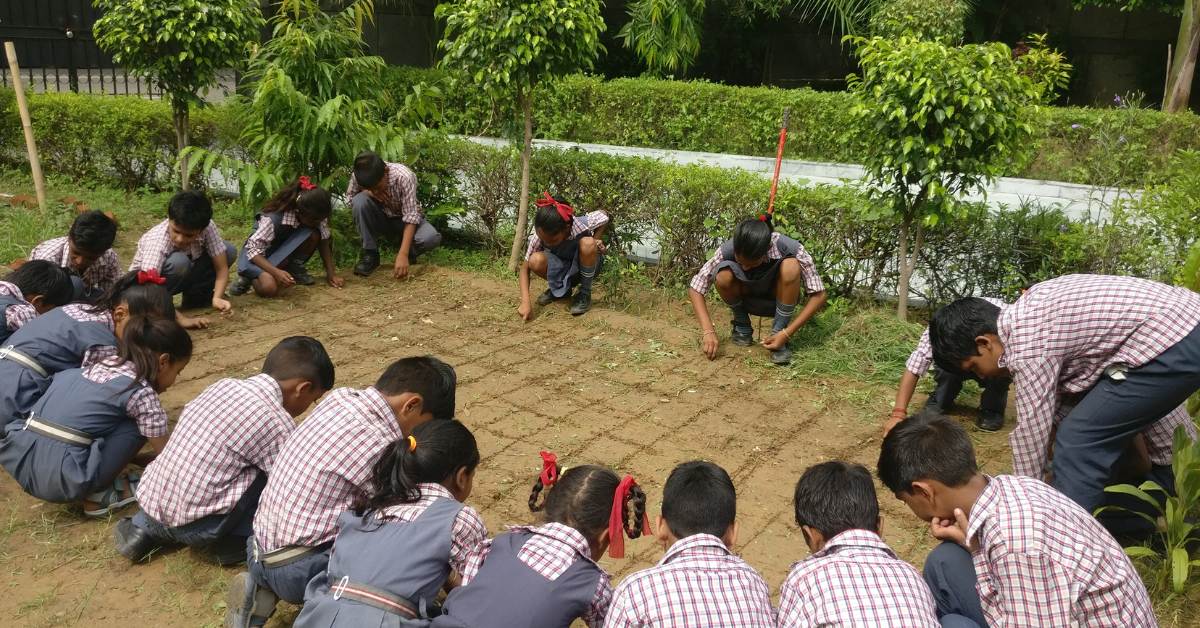 While private schools pay for the programme, government schools are supported through CSR funding
While private schools pay for the programme, government schools are supported through CSR funding
More than a programme — a movement
SowGood is about sowing seeds — of knowledge, curiosity, responsibility, and care. It is about helping children grow into thoughtful citizens who understand the value of the Earth beneath their feet.
Pragati’s journey from advertising to education is a reminder that meaningful change often begins with a single step — and a willingness to dig deep.
News